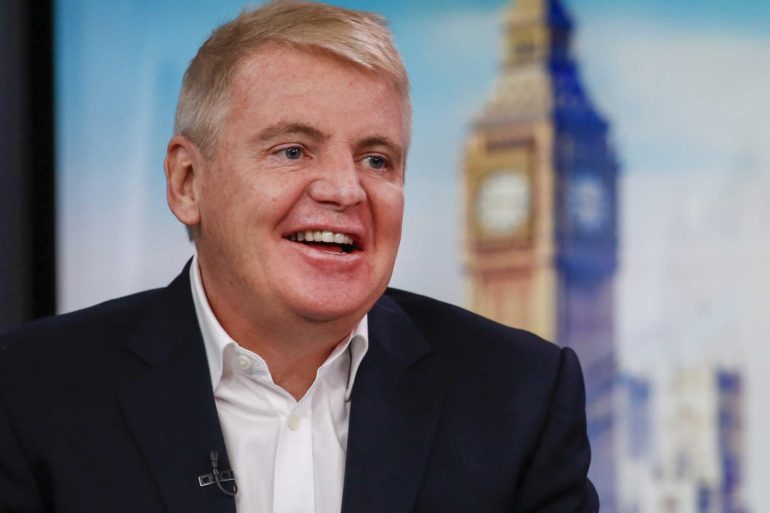LONDON – British billionaire Jim Mellon said he is planning to take his life extension company Juvenescence public in the next six to 12 months.
Founded in October 2016, Juvenescence is investing in a wide range of anti-ageing therapies that it thinks have the potential to extend the human life. One of those investments is Insilico Medicine, which is aiming to use artificial intelligence for drug discovery. It has also backed AgeX Therapeutics, a California-headquartered firm trying to create stem cells that can regenerate ageing tissue, and LyGenesis, which wants to develop a technology that uses lymph nodes as bioreactors to regrow replacement organs.
Speaking to CNBC on Monday from the Spanish island of Ibiza via Zoom, Mellon, who is the chairman of Juvenescence, said: “We have been approached by multiple investment banks and we have identified the investment banks we want to work with.”
Mellon, who has been previously called Britain’s “answer to Warren Buffett,” added: “We are likely, within the next six months to a year, to be a public company assuming everything goes well and markets don’t collapse etc.” The listing will probably be in the U.S. although no firm decision has been made.
The IPO (initial public offering) appears to be running behind schedule; the Financial Times reported in June 2018 that it would happen at some point in 2019.
Juvenescence, which has 29 employees in London, has raised about $170 million privately and Mellon said it still has a “fair amount of money left in the bank.” Other billionaires, including Mike Cannon-Brookes, the co-founder of Australian software firm Atlassian, and NEX Group founder Michael Spencer, have invested in the company.
Mellon, who profited in the 1990s from Russian privatization and areas like mining, said there’s a “good chance” that people his age will live another eight to 10 years as a result of the work being done by Juvenescence and other companies.
“My life expectancy would be somewhere around 85 to 90 — my father’s actually 91,” said Mellon, who reportedly introduced Brexit Party leader Nigel Farage to Leave.EU co-founder Arron Banks. “I would think that there’s a good chance that I’m going to live to 100 plus.”
Mellon isn’t the only billionaire who wants to live beyond a hundred. Michael Bloomberg, who was in the running to be the next U.S. president until recently, told Business Insider in 2017 he wants to live until he’s 125. Elsewhere, Amazon CEO Jeff Bezos and PayPal co-founder Peter Thiel have both invested in San Francisco-based Unity Biotechnology, a company whose mission is to “extend human healthspan.”
Mellon is also the chairman of Regent Pacific, an investment firm listed on the Hong Kong stock exchange that focuses on the health care, wellness and life sciences sectors.
Earlier this month, Regent Pacific acquired a firm called Deep Longevity for 29.56 million Hong Kong dollars ($3.81 million).
Deep Longevity says it is aiming to develop user-friendly AI systems for physicians that can track the rate of ageing at the molecular, cellular, tissue, organ, system, physiological and psychological levels.
In the meantime, it is planning to launch a new iPhone app later this week called Young.AI that can tell people how old they look and suggest ways for them to reverse ageing.
Alex Zhavoronkov, founder of Deep Longevity (and Insilico Medicine), told CNBC on the same call that Young.AI will be “a very playful app” that can tell users “their photographic age.”
He said users will also be able to upload blood test results to the app.
“It will predict their age by blood,” said Zhavoronkov, adding that he is aiming to live until he’s 150 to 170 years old.
Commenting on the app, Mellon said: “Young.AI is a useful tool for people to decide whether they should go to the doctor or not, or to measure themselves against their friends.”
However, he’s more excited by how insurance companies will use the company’s technology to decide if they want to take a risk on a particular person as a customer, adding that it could incentivize people to live healthier lifestyles.
In the U.S., insurance companies can’t discriminate based on prior conditions but they can use your health data to try to incentivize healthier behavior that could potentially lower their costs.
Correction: A sentence has been removed from this article which incorrectly stated that Jim Mellon voted in the Brexit referendum. He was not eligible to vote as he is not a U.K. resident.



